office.mp3: Feeling Fem
It's Women's History Month, so we're showing some serious love from home to our favorite female artists. Pass the time at your casa, and share it with your cat, your plant and your friends on FaceTime.
Stay informed on our latest news!
It's Women's History Month, so we're showing some serious love from home to our favorite female artists. Pass the time at your casa, and share it with your cat, your plant and your friends on FaceTime.
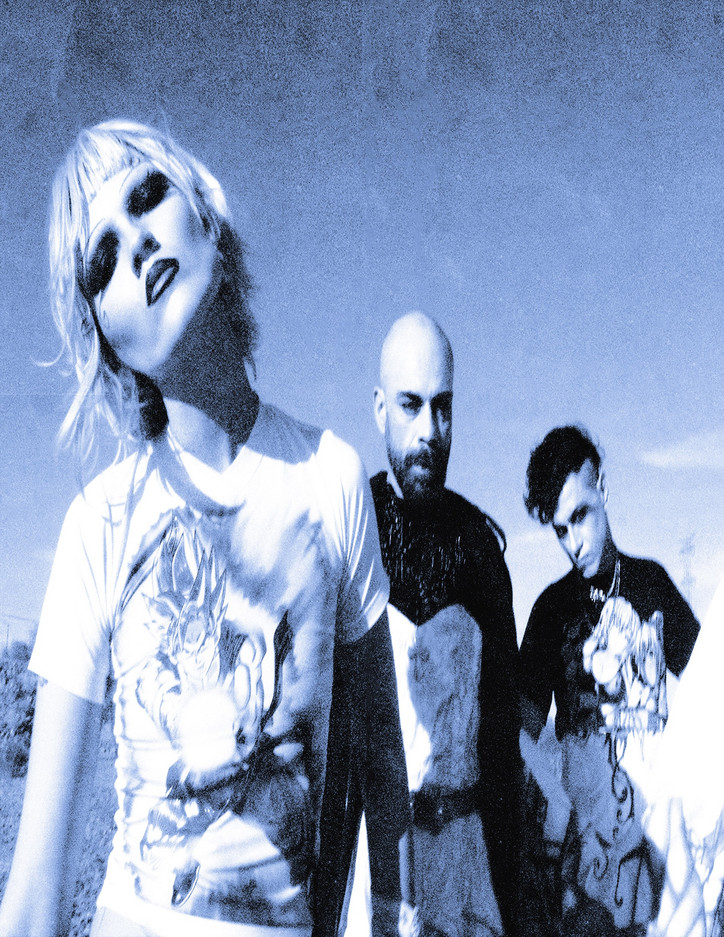
This approachability seems to be the exact thing that carries the singer through her work. Lead singer of the swiftly rising band based between Mexico City and Hermosillo, Meth Math, her music and fashion line, Baby Angel, emit this very same confidence. It also seems to be what steers her band amidst the world of contradictions that they live in.
Meth Math’s first LP, Chupetones, is firm and energetic at first, but there’s something calming about its natural undertones: my earbuds being blasted but my feet floating off the ground. My mind conjured up visuals of a frog having a drug-fuelled one night stand with a bunny, or a snake slithering through wet grass. I learn “chupetones” directly translates to “hickeys”, and I think, Ah yes, the perfect touch of horny.
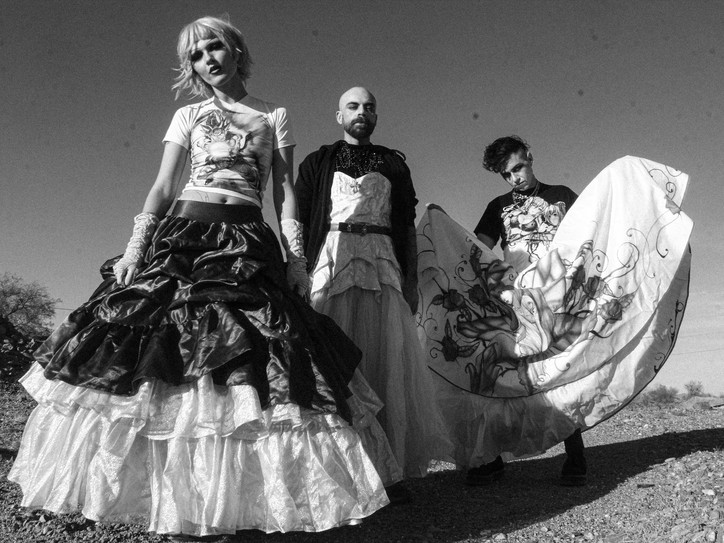
Talking to Angie, I find out that Chupetones essentially is a “manifestation of wanting everyone to go back to nature.” A prayer, if you will, that asks listeners to release themselves from the boxes that restrain them from their natural state of pleasure — in just existing.
“Contradiction” isn’t necessarily a word that exudes comfort and direction, but for Angie, that’s her truth.
“Contradictions are free. You can do and say whatever you want and you aren’t holed in. I can wear this wig today and be one person, but then wear a different wig tomorrow and be someone else.”
This makes me wonder which wig Angie wore on her flight home.
Meth Math was born from Hermosillo's DIY world of music, thriving in venues around Mexico City, surrounded by a supportive scene that allows them to explore and develop their sound.
This time around, Chupetones is more polished than their past EPs. Angie has gone from recording vocals in her closet to having them produced and mixed by Miami-based producer Nick León: a more commercial approach that makes the album shine without losing its DIY nature and quality.
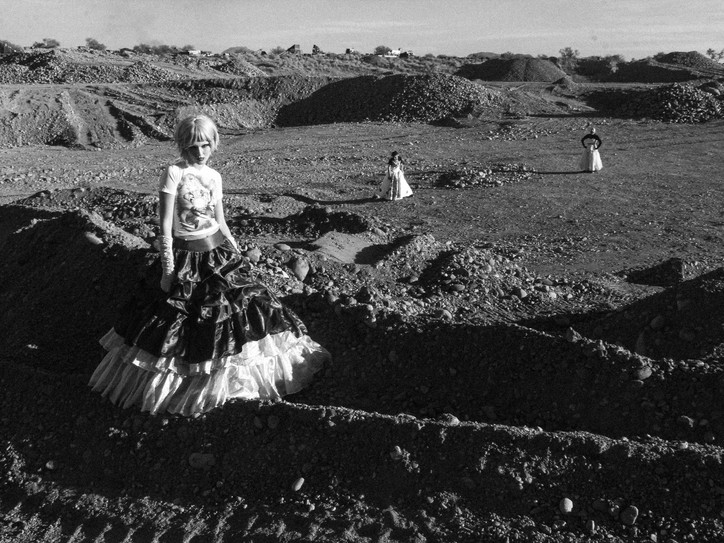
Chupetones was created with the listeners in mind. The lyrics of Cyberia are inspired directly by Meth Math fans, who Angie describes as “angels.” She explains how she asked herself, “What does an angel look like right now?”
The answer? “Probably someone with mental health issues who’s at a party trying to get away from this current dimension. They’re the outcasts of the world, but are also trying to find beauty in the mundane of being a human.”
Outside of music, the mundane is what inspires Angie in her work. She people watches while walking around Mexico City, noting how “weird” everyone can be. When “weird” comes out of Angie’s mouth, it's never an insult, only a curious complement.
She enjoys documentaries like Mother God and listens to artists like Lilen, Natanael Cano, and corridos tumbados, a genre which she aptly describes as "regional music on lean." Angie brings up her parents a couple of times during our chat, who she “couldn’t have pursued all of this without.”
As Chupetones is enjoyed by Meth Math’s angels, Angie will be working on her own long term dream: a communal home in Mexico City for artists. A space for partying, concerts, art shows, and a little store for makers to sell things. A space to save the planet and grow a full garden of fruits and veggies. A space that runs off of bartering, not money, and gets everyone off the grid.
It’ll be the Meth Math universe, where all of Angie’s prayers are answered.
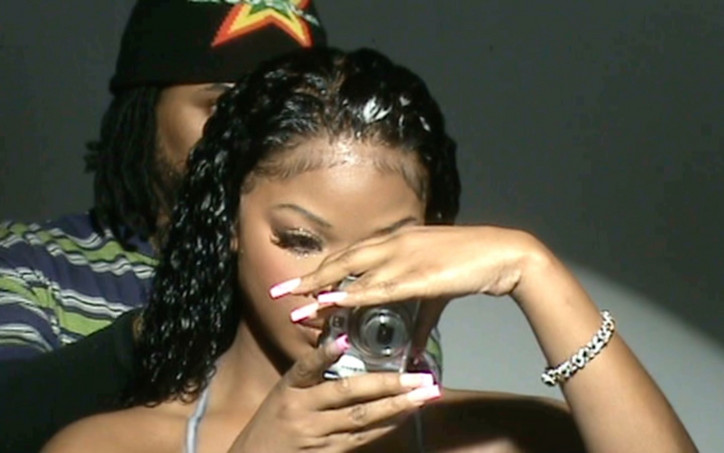
The cover art and music video for "Sideways" show JT in lowrise jeans with a giant belt buckle spelling out her full first name, JaTavia, and an iridescent halter top that reveals itself to be body paint upon a closer look. She is paying homage to Miami rapper Jacki-O, who helped put Miami on the hip-hop map in the early aughts and once wore an unforgettable “Jacki-O” belt to a Billboard hip-hop event in 2003. Stylist Miso Dam nailed Jacki-O’s look down to the vintage Casadei yellow velvet heeled boots, and to recreate Jacki-O’s body painted top, JT enlisted the FX airbrush makeup professional and multidisciplinary artist known as Mab.
The older rapper has served as a longtime source of inspiration for JT, who used to call herself “Jacki-O Junior” growing up. The City Girls interpolated one of Jacki-O’s flows on their very first mixtape, and on the opening track of their last album R.A.W., they set the tone for the project with a shoutout: “Jacki-O but we back on the block, jumpin’ out on these hoes like a Jack-in-the-Box surprise.”
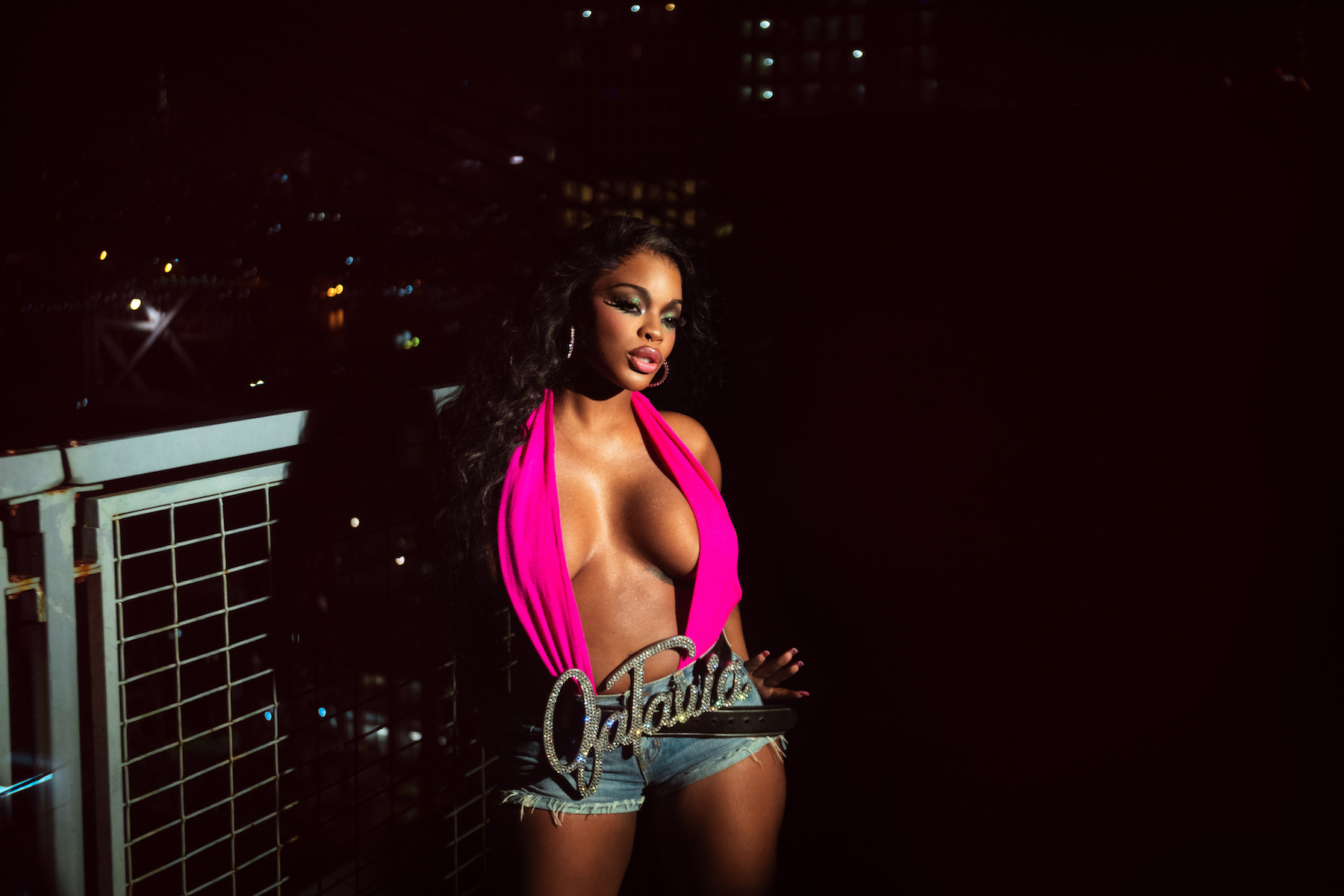
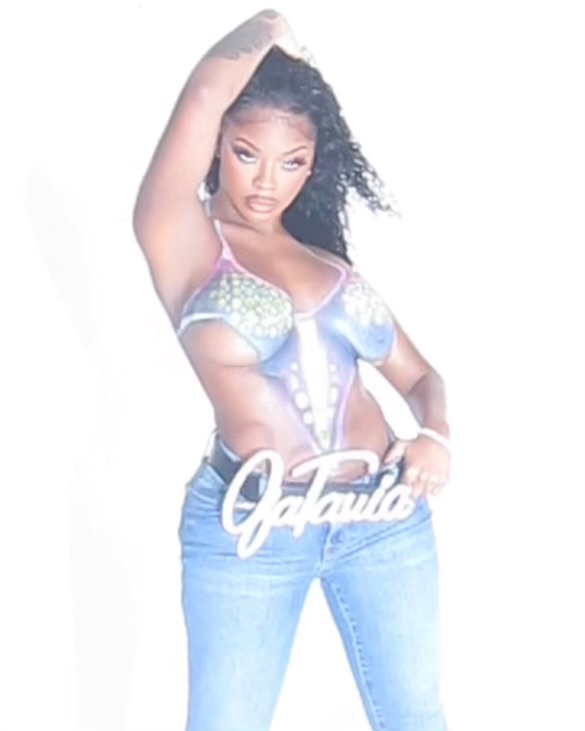
Coming off the heels of campaigns with Poster Girl and Mowalola and too many break-the-internet photoshoots to count, the imagery for “Sideways” cements JT’s commitment to challenging herself visually and earning a legacy as a style icon. Every real fashion diva knows her references, and "Sideways" is proof that JT is doing her homework just as much as she's charting her own lane. Being the “hood bitch dressed like a weirdo” (“No Bars”) in the room doesn’t come without its share of criticism and detractions, but JT also knows that the only tried and true path to superstardom is individuality. Even when she’s paying homage, she isn’t trying to look or sound like anyone but herself — and what makes her so refreshing is that no one else looks or sounds quite like JT. And if you don't get it... she's looking at you sideways.
Watch the music video for “Sideways” below.
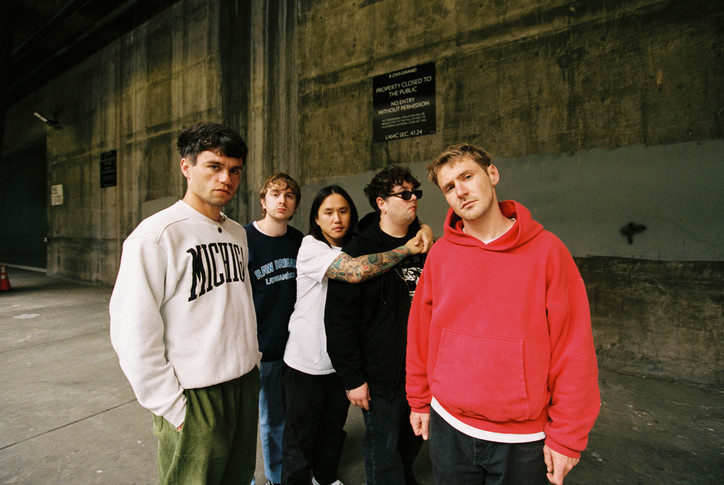
I always struggle with writing about musicians because I feel a pressure to talk to them about their music and write the article that my editor or their managers or agents expect. This is difficult for me because I believe that there are only so many words that can be used to explain what a song sounds like or what a song’s lyrics are about — and I lose motivation when I don’t feel like I have anything new to say. I always want to provide some hidden truth about the subject I’m writing about, but Ian writes and speaks with an openness that reveals more about the listener than it does himself. What I’ve learned from listening to Militarie Gun is that I appreciate honesty and earnestness above all else. What I’ve learned from thinking about Militarie Gun after having a conversation with Ian is that I am not a very honest or earnest person.
I find the band’s openness and earnestness inspiring, but I also find it irrationally frustrating. I am jealous of it. I think a lot about earnestness and about how nobody is earnest and about how everything is wrapped up in too many layers of irony. I talk a lot about how much I hate the lack of earnestness in the world and in the hardcore scene. I say I wish people would stop trying so hard to be something they aren’t, but when I am shown something that is as earnest and genuine and forthcoming as the band’s most recent release, I realize how much time I’ve wasted trying to hide and change and shapeshift.
Ian’s lyrics announce themselves the way I wish I was able to — without disclaimers. He sings about the things that I would keep a secret, and talks about the things that I’d be too self-conscious to admit to anyone. I want to beat myself up for not confronting these things about myself, instead I’ll resolve to practice at least a fraction of the earnestness and openness found within “Life Under the Sun”.
I still don’t think I have anything to say about Militarie Gun that hasn’t already been said before, but I do think that “Life Under the Sun” wants me to be okay with that. And I think there is something valuable there.
Hey, how’s it going? Is it cool if I record this interview?
Yeah, I assume you would have to.
I could just make up a bunch of things instead. No notes. No recordings. Just lies.
I feel like a lot of people do that even when they hit the record button, so go for it.
For real though, how have you been? Are you on tour now?
I’m at home for 12 more days, and then on tour.
I can’t keep track of your touring schedule.
We did a seven week US tour in the fall, and then we went straight to Europe and did five weeks there. Now we’re laying low, well besides FYA. We’re about to leave for the next big six week one. We don’t get to be at home for too long.
Coming off of a tour where you’re playing bigger shows, I assume playing something like FYA was different.
I could definitely tell there was a lot of hesitance towards us at the fest, which is understandable. You know, people are there to hear breakdowns and beat each other's asses. And we don't have any of that. But overall it was great.
The hardcore scene is having this moment of mainstream recognition, it feels like there are a lot of kids coming into the scene with a very different perspective on what hardcore can be.
I always look back at the pandemic as the catalyst for people stopping making such traditional hardcore. Songwriters and artists had time to fully explore a sound. Hardcore was so focused on the live reaction for so long, because it was happening in the room. And when there wasn't a room anymore, people I think, stopped being so concerned with just the fast part, breakdown, fast part, breakdown formula. Instead, people thought, Oh, what else can I do with this medium?
Everyone's dropping these really forward looking records now because it’s all they had to do for a long time. If you actually spent the time and the labor to explore, you ended up with something new.
I remember you sharing very early MG demos when it was still a solo project, and it felt very much like that exploration you’re describing. Fast forward to now, shows and tours are back, it feels like the band has really taken off. I feel like I don’t even understand what all has happened.
I’m a very restless person, so when all of the shows and music videos got canceled, I just went to the practice space everyday and wrote a song a day — and a lot of those songs were failures, but then some were good and became Militarie Gun songs.
The one great thing we had was just having nothing else, but the ability to practice for over a year. It felt so psychotic and maddening to only be able to practice and not be able to play shows, but it was such a godsend in the way that we were able to just keep honing in on what we wanted the band to be. Every moment that we're not on tour, we're writing and practicing and making videos and doing anything we can to keep the band exciting and fresh for ourselves. I wish people could see the labor element behind what we’re doing.
Do you write music as a full band now? Or are you still the primary songwriter?
I'm still the primary songwriter. Mainly due to the fact that I'm the only person I know that's always with me. If my band members were with me all the time, I'm sure we would write more together.
You're also kind of an obsessive person — in a good way.
I’m definitely an obsessive person, I get into crazy cycles of obsession. I try to acknowledge it like, “No, you're in a cycle. Chill out. This Is gonna be numb in like two weeks. So don't over commit.”
Do you worry about waking up one day and wanting to do something that isn’t Militarie Gun?
I don't worry about it. I embrace that it is likely. There's a quote from Adaptation that I've always loved, where one character is talking about how he used to go hunting for tropical fish every day, and he says, “One day, I decided to never go in the ocean again.” That probably will be me one day, but I'm not there right now.
We just worked with Manchester Orchestra. Watching their musicianship was very humbling. I refer to us as idiot musicians. We can get it done, but we’re playing in ways that are very atypical, because we're not classically trained. So, for us to get bored, it would be because we felt that we perfected everything, and we know that we're very far from that.
Many people aren’t that open about having a desire to continue learning and honing their craft. I don’t think people like admitting that they put in effort.
Earnestness is, I think, the MG brand. That means being embarrassed. It means risking embarrassment, it means that you could take a lyric and make fun of me, and I'm gonna have to be okay with that. This whole band is about embracing the melodrama, and not censoring that like the most dramatic version of a feeling. Our record is called Life Under the Gun because it’s supposed to be very oppressive and dramatic.
I struggle with that. Because it's when you put that much of yourself into something, you feel very, very vulnerable. How do you grapple with that?
Ultimately, I've started to view the other side of it as the enemy. I'm sure people speculate on our success, but I'm going to continue being open-hearted and kind. I want to make music that makes me feel better about my own situation. I came from some fucking crazy shit. I have a lot to do to make my own brain feel good. And so I'm going to keep doing what makes me feel good, which is making these songs.
It sounds like there's some sort of value that you're trying to provide through your music.
I can't say that I'm providing any value other than like a brief blip of enjoyment, but a huge part of these songs was that I wanted to talk about making mistakes and hurting people because I think that people don't talk about it enough. The moments in culture we've had to talk about people's mistakes are very rarely self-aware. I make mistakes, I've hurt people, you know. As people, we're almost always operating out of self interest and when you're operating a self interest, you’re likely to hurt someone else.
I read a previous interview of yours where you touched on this idea of selling other people out through your lyrics and having to consider how that affects those people.
My mother, early on in life, told me I didn't need to lie about what our home life was like. In second grade, we had a DARE officer come to class. My mom was in rehab at the time, and they were talking about drug rehabilitation in the class, and I just eagerly raised my hand and said, “Oh, rehab, that's where my mom's at right now.” I've always just been an open book about the crazy shit happening in my life. I have the most beautiful relationship with my mother despite everything that we've come from. That being said, this guilt does start setting because you realize that you are creating a permanent record of the wrong others have done, which is the antithesis of “Never Fucked Up Once”.
I don't think we can stop talking about other people in the way that they've impacted your life. What would you have to say after that?
At some point, you're just you're also then you're keeping secrets for other people, which I think it is where the truly corrupt shit happens. Children are expected to keep adult secrets. And there's nothing more wrong in the world than that.
But telling these more personal experiences to a room of 50 hardcore kids is very different from telling those stories on stage at Coachella. The way you write lyrics hasn’t changed at all?
I started trying to revise my writing and lose some of the cynicism. I’ve always tried to offset the heaviness with humor, but now, I'm trying to kind of lean away from that so that I can actually fully express the idea without anything being veiled. I'm trying to lean further into honesty.
Are you cynical? Would it not be dishonest to censor cynicism out of your lyrics?
I think I can be cynical. Like, I don't have huge hope for the world. I don't have huge hopes for the future of children in this world. But I think that we can still make it a beautiful place as we're living out these days, but I want to leave those things out of music, largely. I want my music to be vulnerable. I want to be earnest. I want to have that open heart and that means offsetting some cynicism here and there.
My girlfriend always talks about how miserable my lyrics are and a huge goal of military gun is to offset the sadness or melancholy of the lyrics with these really poppy fun bouncy songs, but with the new song with Manchester Orchestra, it was nice to kind of go in and, and let the music feel as emotional as the lyrics are to me.